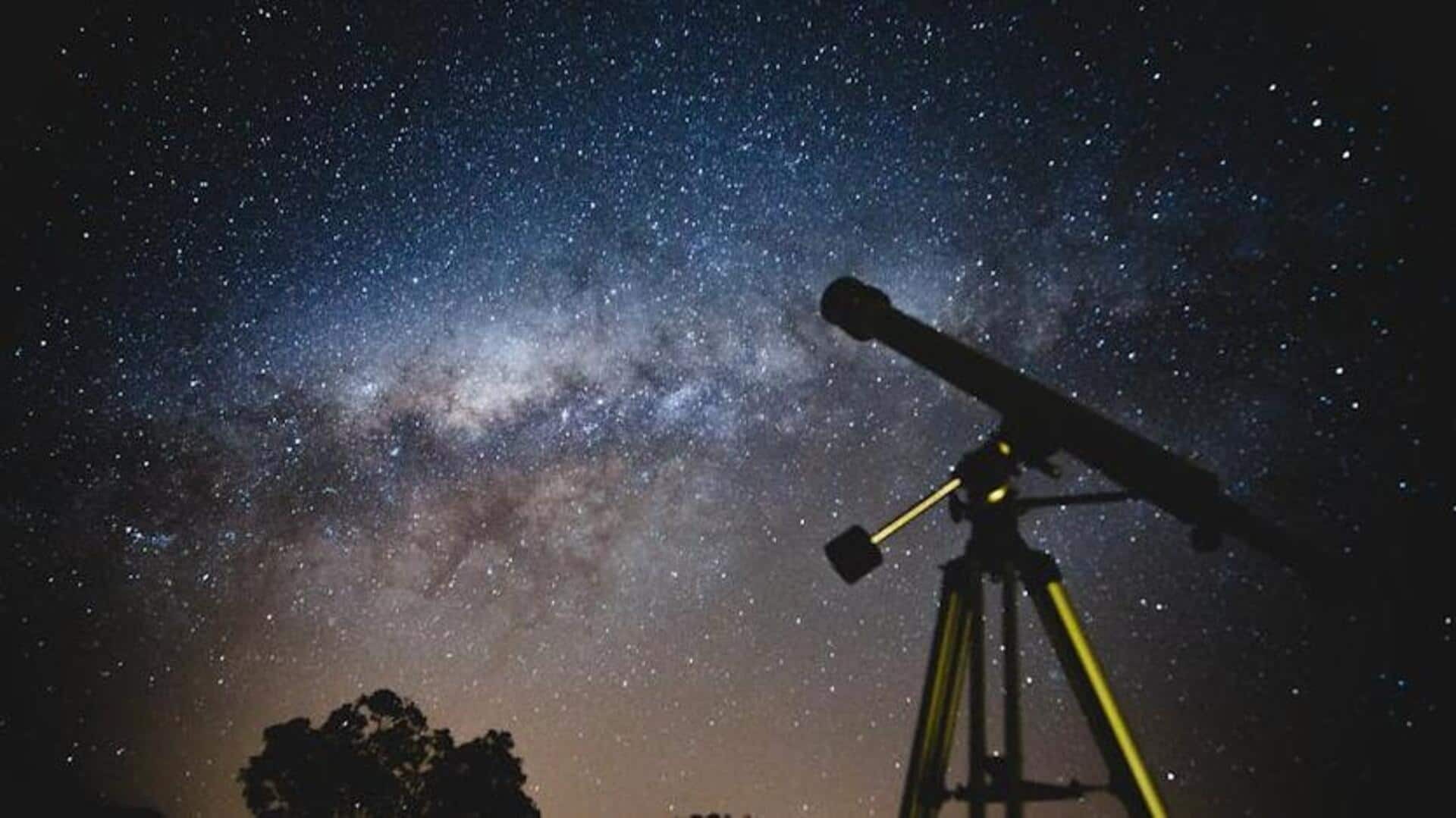
Planning a star-gazing astronomy night event
What's the story
Planning a star-gazing astronomy night event is a thrilling endeavor that promises a night of wonder and learning for stargazers young and old. It requires choosing the perfect location, guaranteeing clear skies for optimal viewing, and supplying telescopes or binoculars to bring the cosmos closer. This article provides a comprehensive guide to planning your astronomy event, focusing on practical advice to make the night truly special for everyone involved.
Location
Choosing the perfect location
Start by choosing a place far away from the city lights. You want as little light pollution as possible. National parks or countryside locations are perfect because they have super dark skies. That means everyone can see the stars and planets way better. Make sure the place is safe and easy to get to for everyone.
Weather
Checking weather conditions
The weather plays a huge role in the success of your astronomy night. You need clear skies to see anything! Keep an eye on the forecasts and have a plan B ready in case of bad weather. Communication is important. Let your guests know about potential changes ahead of time. This way, everyone knows what to expect, and your event will be a success no matter what.
Equipment
Providing viewing equipment
Not all guests will have their own telescopes or binoculars, so it's a good idea to have some available on-site. You can rent telescopes from local astronomy clubs or even purchase them from shops. Plus, having multiple viewing stations set up with volunteers who can guide guests on how to use the equipment and what celestial objects to look for adds to the overall experience.
Learning
Educational activities and resources
To further enhance your star-gazing event, consider incorporating educational elements. Guided constellation tours or talks by amateur astronomers can add a layer of learning and engagement to the experience. Providing handouts detailing constellations, planets, and other celestial phenomena can also contribute to a more informed and enjoyable experience for participants.
Comfort
Ensuring comfort and convenience
Since astronomy nights can get chilly with everyone hanging outside for a few hours, make sure to remind folks to bundle up. A small concession stand selling hot drinks like tea or cocoa for a buck or two will keep everyone toasty. And have some portable chairs and blankets on hand for those who don't want to stand while they're checking out the stars.